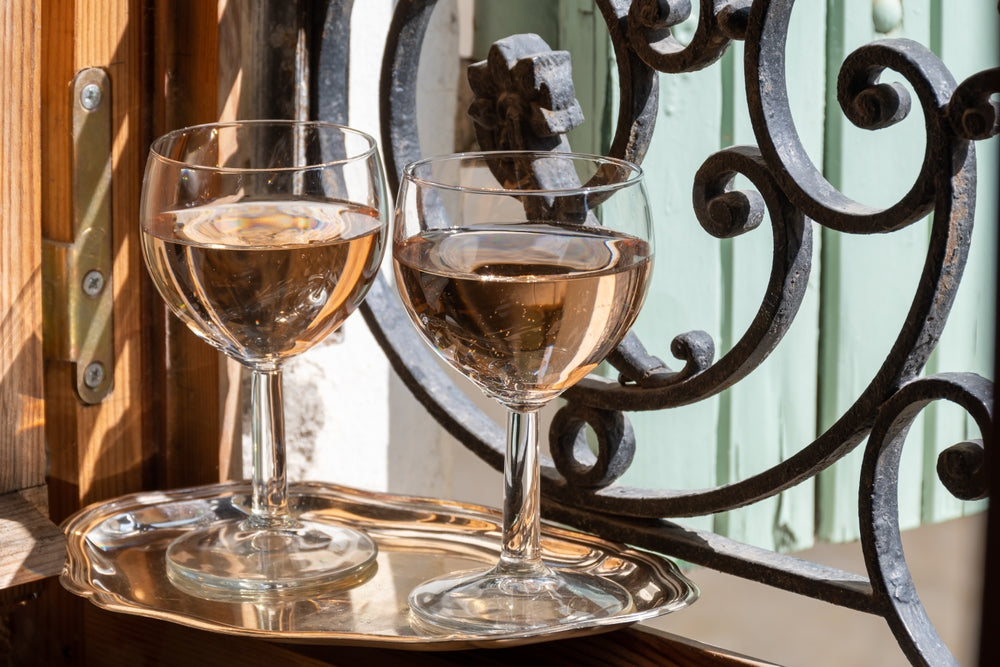
What Is Dry Wine?
Seasoned wine tasters, sommeliers, and even amateur wine drinkers use the term “dry” when describing wine. But if wine is a liquid, how can it be dry?
Most of the wine in the market today is dry. The ones that aren't are considered specialty wines, like dessert and sparkling wine. Table wine is dry; that's the standard. But this wasn't always the case. In fact, sweet, fortified wine dominated the wine market for centuries. Before that, it’s likely that wine in antiquity wasn't dry either. Dry wine is typical today but is a modern wine style, primarily because it's difficult to make.
What Makes a Wine Dry?
Dryness in wine refers to the lack of sugar. Precisely, the lack of residual sugar after fermentation. All wine starts as sweet grape juice; yeast turns the sugar in the juice into alcohol. If all goes well, the yeast leaves little to no residual sugar left in the fermentation vat. The wine is now dry.
Of course, fermentation is now a science, but it was once unexplainable, an act of nature. Sometimes it went well, sometimes it didn't. It took thousands of years to perfect the techniques and equipment to ferment wine to dryness consistently, including using efficient yeast strains and temperature-controlled vats. The question is, if most wine is dry, why does it taste sweet?
Common Misconceptions About Dry Wines
Sweetness is perceived on the tongue and palate. It's a basic taste, along with sour, bitter, salty, and savory. Think about it this way: you can recognize that some perfumes smell sweet. But if you taste them, you won’t notice any sweetness. That's because our minds believe sweet and fruity aromas come from sweet-tasting food. We're hard-wired to find carbohydrates with all our senses.
In the case of wine, what was once sweet juice has become sweet-smelling wine that’s often dry. All wines have sweet bouquets, and they all offer fruit aromas. But if they don't contain noticeable amounts of sugar, the wine will taste dry.
A second misconception about dry wines is that they’re more alcoholic than sweet-tasting wines. Although sugar and alcohol content are related, other factors—including the weather, grapes used, and the hand of the winemaker—play more significant roles in determining wine's alcohol content.
Types of Dry Wine
Dry wine comes in all colors and styles. Most wine regions worldwide, with some exceptions, specialize in dry wine production. Dry wine is in vogue. How do you know if a bottle of wine contains dry or sweet wine?
Since it's expected to be dry, table wine won't say much about its residual sugar content on the label. However, if the wine is off-dry, semi-sweet, or downright luscious, the producer will mention it front and center with terms like sweet or deux.
Red wine is primarily dry unless it’s fortified. If it’s fortified, it’s probably sweet. The famous grapes you find everywhere—including Cabernet Sauvignon, Pinot Noir, and Merlot—produce dry wines. There are always exceptions. Producers in Germany make interesting off-dry red wines with Dornfelder, and Italians have their sweet, red, and fizzy Lambrusco, amongst others.
Sweet white wine is more common. Grapes like Muscat in all their forms often produce wine with a certain amount of sweetness. However, most white wine is also dry, even if sweet-smelling. We can say the same about rosé. The finest pink wines in the world are bone dry, but sweet specialties are everywhere.
Sutter Home and other commercial, entry-level brands often leave residual sugar in their wines to appeal to a broader audience. However, even industry professionals appreciate a glass of sweet wine now and then. Dry wine is not, by any means, better than sweet wine.
The term dry for sparkling wine doesn't mean it isn’t sweet. Dry sparkling wine usually contains between 17 and 32 grams of sugar per liter. As a reference, anything below 3 grams is considered dry.
Enjoy Dry Wines With Grassl Glassware
Do you enjoy dry wine? Or are you more into sweet specialties? Or maybe, like most wine lovers, you like the palate dry and the nose lusciously sweet. Either way, enjoy your favorite wine in Grassl's mouth-blown, artisan glassware for the best experience. If you thought sweetness in wine mattered, wait until you experience wine from proper wine glasses.
